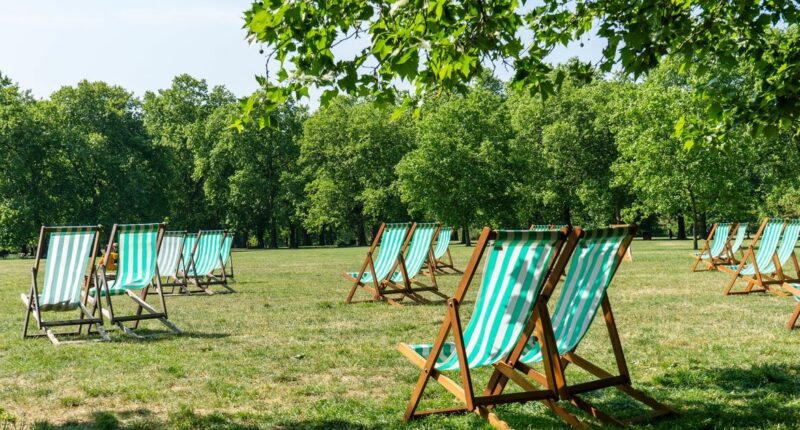Share this @internewscast.com
New research reveals that city inhabitants spend more time outdoors daily compared to those residing in small towns and villages. A survey conducted among 2,000 adults shows that urban dwellers average one hour and 17 minutes outside each day, which is over 10 minutes more than people living in suburban or rural areas. Nonetheless, more than half of those living in inner cities confess that most of this time is spent commuting rather than enjoying natural environments.
The study also underscores a growing generational gap in connection with the natural world. Nearly half of Gen Z (44%) and over a third of Millennials (36%) feel less connected to nature compared to older generations. Additionally, two-thirds of Gen Z admit there are days they don’t venture outside at all.
The research was commissioned by Super, Natural British Columbia, the official tourism body of the Canadian province, in conjunction with the launch of a complimentary digital tool known as The Nature Rating.
The tool evaluates the extent of nature present in the media people engage with – ranging from TV and films to books and music – in an effort to inspire more real-world outdoor interactions.
Social psychologist Dr. Pelin Kesebir commented: “Since the 1950s, nature references in songs, books, and films have steadily declined. This indicates a larger societal issue, as there is a strong correlation between what we consume and our actions.
“Art, media, and culture not only depict but also influence our experiences, so the lack of nature in the content we consume signifies a broader and worrying disconnect from the natural environment.”
“That’s why tools that encourage a healthier ‘nature diet’ in our media can be a powerful catalyst for inspiring real-world nature engagement.”
The survey, conducted by OnePoll, found that 30 per cent of people feel there’s a ‘nature deficit’ in their entertainment, even though nearly half say seeing nature in pop culture motivates them to get outside.
BBC’s Countryfile, David Attenborough’s Life on Earth and Blue Planet, and even The Great British Bake Off were cited as top inspirations. Yet, only a quarter of adults make a conscious effort to get outside daily. Bad weather and lack of time are the biggest barriers.
Parents are also concerned, with under-18s spending just 58 minutes outdoors each day. Over 40 per cent of parents believe they spent more time outside as children, blaming increased screen time, safety worries, and poor weather for the decline.
Maya Lange of Super, Natural British Columbia said: “The benefits of spending time in nature are widely known, but modern life can make it difficult, with our research showing that we’re becoming more disconnected from nature with each generation.
“The Nature Rating is designed to help people take a first step – assessing nature in content they consume can inspire people to go outside and foster a stronger connection to the natural world.”













